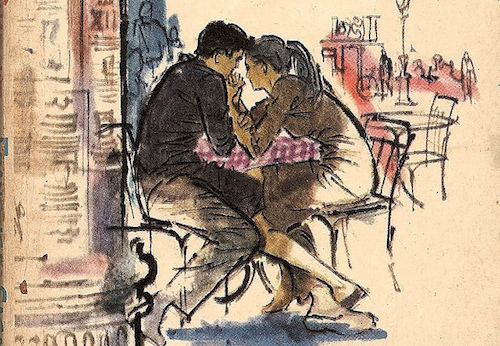We’ve all heard the old adage, “You can’t love others until you love yourself.” The same holds true for trust.
Without trust, the possibility of a new relationship brings up self-defeating, fear-based concerns like, “No one’s really trustworthy anyway,” or “Why should I get to know her deeply? I’ll only get hurt in the long run.”
Romantic self-assessment
We can often get a glimpse of our future romantic endeavors by our track record with mates. If we tend to attract no-job or no-romance types, then that may be exactly what we unconsciously beileve we deserve—or just that with which we are most familiar. Conversely, if we intend to attract trustworthy, loving, romantic and successful partners, then that is exactly is what we will search for.
If we’ve lost trust in ourselves based on poor dating choices, we must first understand that these (false) beliefs came from an honest place: the very conscious desire to not get hurt again. We build deep defenses to protect ourselves, which is an admirable thing. However, just like too many painkillers can cause liver damage, too much emotionally self-protective “medicine” can kill our chances at being open enough to accept love when it does come around.
The happy news is that we can re-train ourselves to trust again by choosing friends, dates, lovers, and partners in ways that honor our highest self.
Nourishing the highest self
Practice incorporating the good things your brain tells you that you want in a partner (but never seem to find). Write five things about yourself that you are proud of. Do this every day until it feels completely natural to honor what you love about yourself.
Date yourself
After you are comfortable with self-honoring, celebrate by taking yourself out. If this seems too cheesy, think of it as research for a potential (or current) date. Get dressed, get psyched, see how you feel. Do you feel worth this? Does it feel awkward? Be honest with yourself about the results.
A variation on the exercise is to take yourself out with friends, your kids, or colleagues. While out, be aware of that highest self you’ve been nourishing. In this way, you get used to embracing your own life, rather than relying on someone else (i.e., a potential mate) to validate you.
How well do you receive?
Another way to develop trust is to notice how we receive kindness and generosity from others. How do you respond when someone gives you an unexpected gift? Holds a door open for you? Lets you ahead of her in line at the grocery store? Tells you how great you look? Digest these experiences.
If you find it difficult to receive kindness, you may wish to focus on the relationships in your life thusfar. Who did most of the giving? If it was you, why might that be the case? Are you afraid others’ love is contingent upon your generosity? Do you feel beholden to others if they are kind to you? When did you first begin to feel this way? Is that story applicable now?
The more we look at our life with truth, the more we learn to trust ourselves. In turn, we learn to attract appropriate mates and nurture the relationships that develop. Continuing this line of self-work means that when we are between dates—or relationships—we are constantly nurturing the inner self from which all love moves outward into the world.
Love elephant and want to go steady?
Sign up for our (curated) daily and weekly newsletters!
Author: Rachel Astarte
Editor: Catherine Monkman
Photo: Robert Huffstutter/Flickr
Ready to join?
Hey, thanks so much for reading! Elephant offers 1 article every month for free.
If you want more, grab a subscription for unlimited reads for $5/year (normally, it's $108/year, and the discount ends soon).
And clearly you appreciate mindfulness with a sense of humor and integrity! Why not join the Elephant community, become an Elephriend?
Your investment will help Elephant Journal invest in our editors and writers who promote your values to create the change you want to see in your world!
Already have an account? Log in.
Ready to join?
Hey, thanks so much for reading! Elephant offers 1 article every month for free.
If you want more, grab a subscription for unlimited reads for $5/year (normally, it's $108/year, and the discount ends soon).
And clearly you appreciate mindfulness with a sense of humor and integrity! Why not join the Elephant community, become an Elephriend?
Your investment will help Elephant Journal invest in our editors and writers who promote your values to create the change you want to see in your world!
Already have an account? Log in.
 Share on bsky
Share on bsky


Read 4 comments and reply